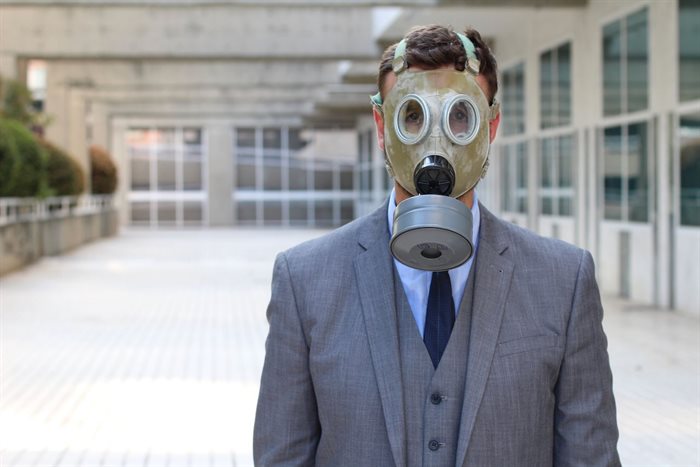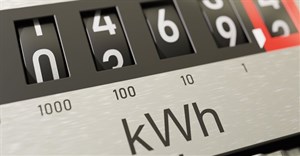Trending




 Sabre EMEA 2024 Awards: Razor PR, Retroviral top SA agenciesDanette Breitenbach
Sabre EMEA 2024 Awards: Razor PR, Retroviral top SA agenciesDanette Breitenbach
Elections 2024
Jobs
- Sales Development Rep Johannesburg
- Customer Service - UK Work From Home Nationwide
- Property Portfolio Manager Johannesburg
Air quality an important differentiator for commercial property in 2022

According to the World Health Organisation (WHO), air pollution is one of the biggest threats to human health next to climate change. In September 2021, the global organisation revised its air quality guidelines, reducing levels of key pollutants, warning that exceeding the new air quality guidelines is associated with “significant risk to health”.
“We associate South Africa with beautiful, clear air, but the fact is that many of us are going to work every day and breathing in air that is unsafe. Building regulations are designed to minimum standards, but employers should be looking to maximise the air quality, not only because it is the right thing to do, but because of the very clear benefits that come with improved air quality,” says Edward Hector, MD at SFI Group.
New research led by Harvard T.H. Chan School of Public Health shows that air quality in an office can “...have significant impacts on employees' cognitive function, including response times and ability to focus, and it may also affect their productivity.”
“All employers look for ways to reduce absenteeism due to ill health, but studies are now also clear that air quality goes a long way to ensuring better performance. Boards assign a fair bit of their budget on employee wellness programmes, but often overlook what they are forcing their staff to breathe in when they are on their premises,” Hector says.
It’s not only those buildings close to refineries and other obvious pollutants that suffer from air quality challenges. South Africa is a hot country and Hector points out that bringing in large volumes of fresh air means having to cool it down to a more tolerable workplace temperature.
“The more fresh air you bring in on a hot 32 degree day, the harder the air conditioning system works to cool that air down to 21 degrees, and this has associated energy costs. When we shifted to green buildings the thinking was to minimise fresh air. It’s only now with Covid that the thinking has reversed, but there is a trade off when it comes to energy costs. The sensible route is to ensure the air that is already circulating in the building is as clean as possible,” he says.
New technology based on tested science
Hector believes the best solution for South African companies is technology first pioneered by Albert Einstein.
“Bipolar ionisation has been in commercial use since the 1970s. The process delivers ionised oxygen molecules into the air that then neutralise chemical compounds, mold, dust, smoke, and even viruses in a matter of minutes. Airborne particles are charged by the ions causing them to cluster and fall to the ground or be caught in standard HVAC filter systems as they cycle. The ions produce a chemical reaction on the membrane surface of viruses and bacteria that immediately makes them inactive. While the technology is not new, further refinements of the process have resulted in efficiency rates of 99.9% and now come with UL certification for zero ozone emission,” he explains.
Hector explains that the small bipolar ionisation module is installed in the airstream of existing airconditioning systems and, unlike many other options, is relatively maintenance free.
Cleaner air is good for business
While the benefits of great air quality at the workplace are glaringly obvious for employers, Hector says having bipolar ionization systems installed in buildings can also offer a competitive business advantage.
“The move towards green architecture has been a hit with many companies looking to lower their environmental impact. Green buildings have been shown to lower operating costs through energy and water savings. They also aim to promote a healthier working and living environment, however all this is for nothing if the air that is being breathed in is sub-par,” Hector says.
He also points out that tenants are consumers and not only are they becoming more discerning, but they will ultimately have a big say in the decision on where they spend their time.
“Commercial property owners are constantly looking for ways to attract and retain good long-term tenants. Tapping into an increasingly important health and wellness advantage will land particularly well in the current climate. More than just the office headquarters, hotels and co-work office spaces could add outstanding air quality to their list of offerings. Today’s consumers are exceedingly concerned about what they are putting into their bodies. What we breathe in should be even higher on our health agendas. There is no doubt that air quality could be a real business differentiator as we move into 2022 and beyond,” Hector sums up.
About SFI Group
SFI Group was established in 2004 as a provider of air-conditioning and related maintenance services, and is a leader in the field of HVAC maintenance. Since launching, SFI has grown its original Cape Town based business to a national footprint with operations in Johannesburg and Durban. SFI is a trusted partner to some of the largest commercial and industrial property owners and management companies in South Africa. Its proven track record in the provision of technical services supports building and facilities managers in enhancing the performance of their assets.





